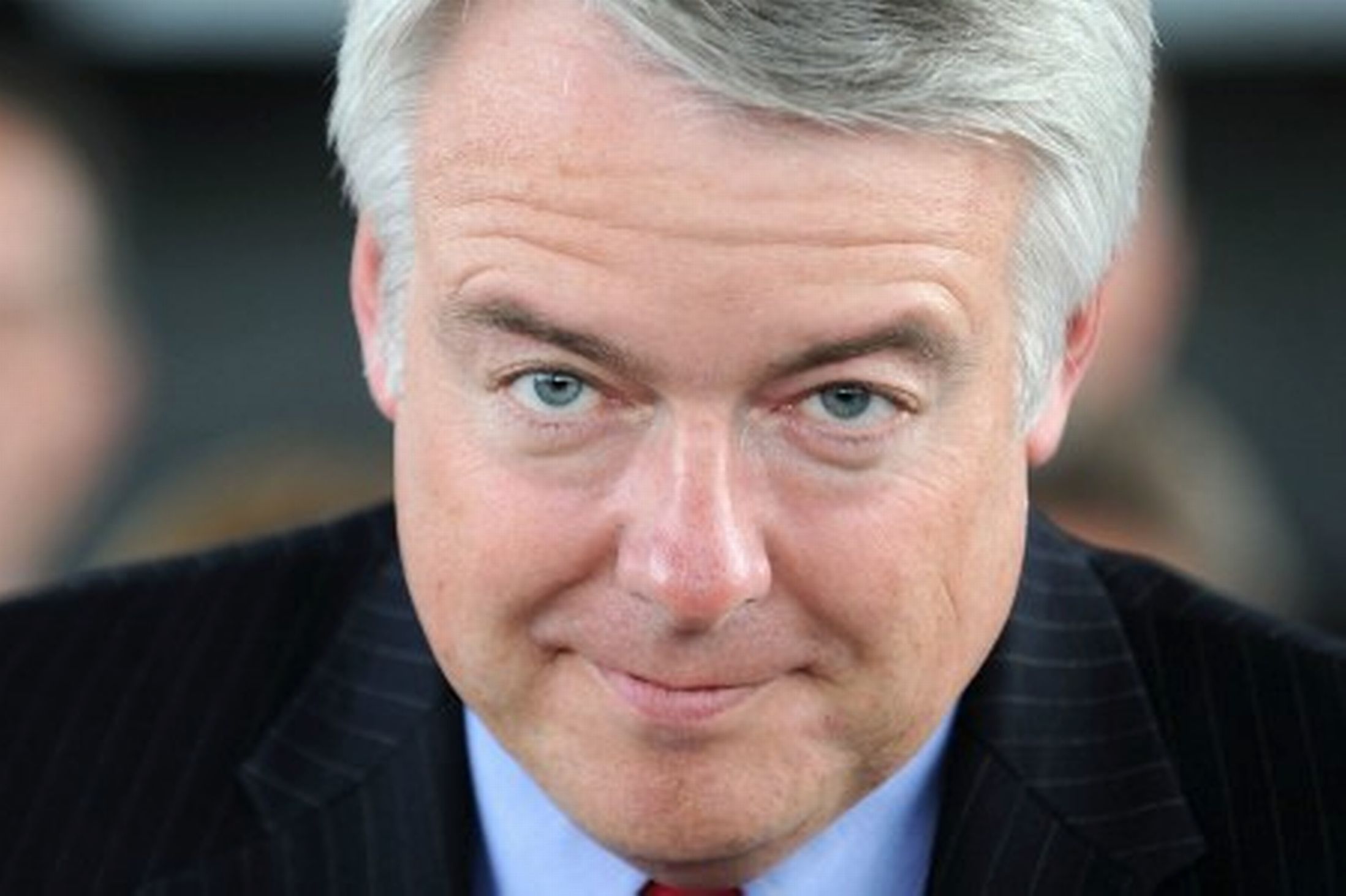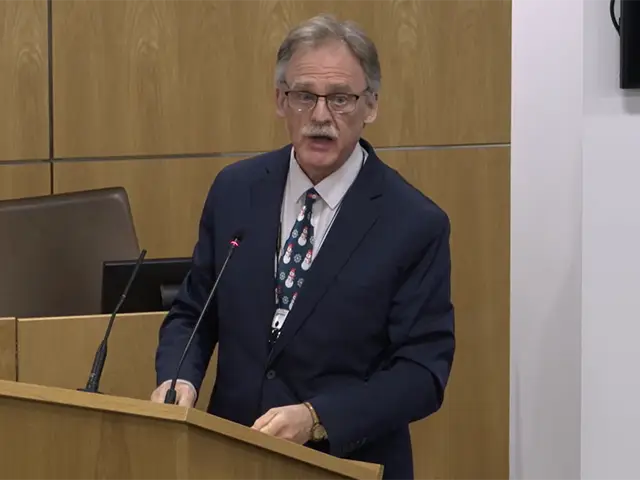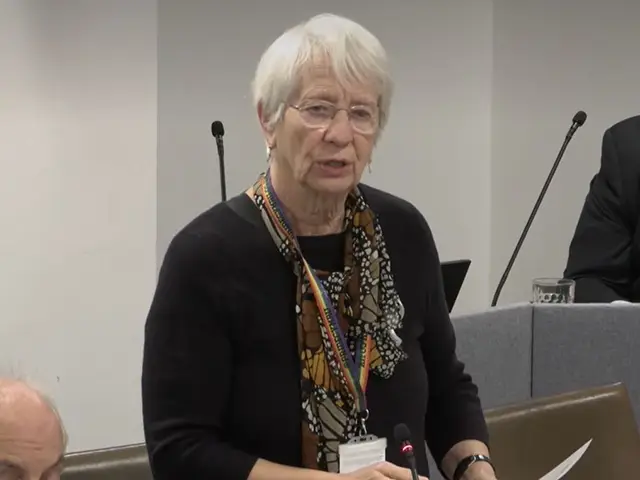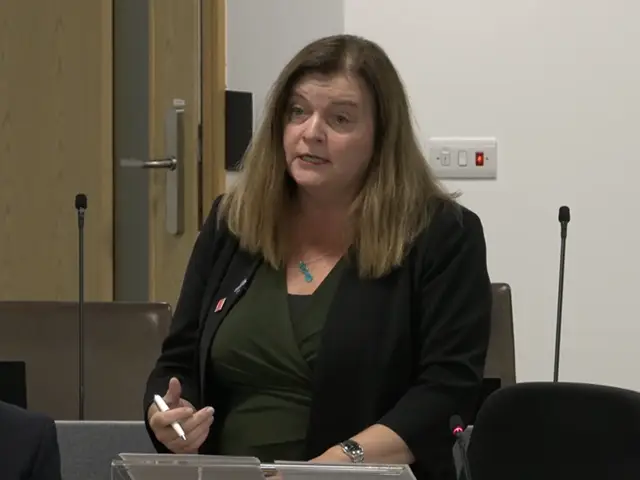Politics
Carwyn in crisis after Millar’s statement

A WAR of words has broken out between First Minister Carwyn Jones and former Cabinet member Leighton Andrews about allegations that a report into bullying was made by Mr Andrews to the First Minister as long ago as 2014 and that one of the AMs he reported as being a target of adverse briefing was the late Alyn & Deeside AM Carl Sargeant.
Mr Sargeant died in November this year after being dismissed from his Cabinet post.
He was sacked from his post on the basis of allegations about his behaviour that were never put to him.
The First Minister finds himself exposed on the issue, after making a series of pious announcements about how the Welsh Assembly would not cover up allegations of bullying and inappropriate behaviour following a series of allegations about the conduct of senior figures at Westminster.
That position has been progressively unpicked by Mr Andrews in a number of tweets, blog posts and very few media interviews.
And in the Welsh Assembly on Tuesday (Dec 12), Mr Jones’ position was left even more exposed by a dramatic personal statement by Conservative AM Darren Millar.
Mr Millar revealed that when he asked the First Minister questions about bullying in the Welsh Government in 2014, he did so at Mr Sargeant’s request and timed the questions to coincide with Mr Sargeant telling him that a formal complaint of bullying had been made against a special advisor (SPAD) to the Welsh Government.
Mr Jones was not in the Senedd to hear Mr Millar’s statement, having left after fielding First Minister’s questions.
TWO ISSUES UNRAVELLED
The issue of the First Minister’s treatment of Carl Sargeant and the latter’s death have become intertwined with a second issue, namely whether or not the First Minister misled the Assembly when he said – three years ago – no allegations of bullying had been made to him about the conduct of either special advisers or specialist advisers.
This article sets out the way in which both issues wind around themselves and why Carwyn Jones finds himself in jeopardy.
There are currently three investigations ongoing that affect the First Minister directly and indirectly. A further investigation – into allegations made against Carl Sargeant – has been discontinued.
The first investigation is into the way Mr Jones investigated allegations against Mr Sargeant; the second is into whether he misled AMs; the final one is the investigation by HM Coroner into Carl Sargeant’s death. Any one of the outcomes of those investigations have the potential to end Mr Jones’ career in ignominy.
While each of those investigations are hazardous to the First Minister’s political health, if Mr Jones is found to have breached the Ministerial Code of Conduct, there is no way for him to ride out the ensuing storm.
WHAT IS THE MINISTERIAL CODE?
‘Ministers are expected to behave according to the highest standards of constitutional and personal conduct in the performance of their duties’.
The ministerial Code, issued by the First Minister, provides guidance to ministers on how they should act and arrange their affairs in order to uphold these standards. In particular, they are expected to observe the 7 principles of public life and the principles of ministerial conduct. The code applies to Cabinet Secretaries, Ministers and the Counsel General.
WHAT DOES THE CODE SAY?
‘It is of paramount importance that Ministers give accurate and truthful information to the Assembly, correcting any inadvertent error at the earliest opportunity. Ministers who knowingly mislead the Assembly will be expected to offer their resignation to the First Minister.
‘In particular, the First Minister may also refer matters concerning himself to an Independent Adviser’.
WHY IS CARWYN JONES IN DIFFICULTIES?
In November 2014, Darren Millar AM submitted a Written Assembly Question to the First Minister asking: ‘Has the First Minister ever received any reports or been made aware of any allegations of bullying by special and/or specialist advisers at any time in the past three years and, if so, when and what action, if any, was taken?’
Mr Jones’ answer could not have been more unequivocal: ‘No allegations have been made’.
WHAT IS CARWYN JONES ALLEGED TO HAVE DONE?
Mr Jones’ version of events has been challenged by his former Cabinet colleague Leighton Andrews.
Leighton Andrews says: ‘I made a complaint to the First Minister about one aspect of [deliberate personal undermining of Carl Sargeant], of which I had direct evidence, in the autumn of 2014. An informal investigation was undertaken. I then asked for it to be made formal. I was told it would be. I was never shown the outcome. There was no due process’.
Mr Jones has maintained that no allegations were made, sparking a war of words between himself and Mr Andrews. At First Minister’s questions on December 5, Carwyn Jones came perilously close to calling his former colleague a liar. Mr Andrews responded by publishing a more detailed account of events and invited the First Minister to repeat what he had said in the Senedd without the benefit of Parliamentary Privilege to protect him from legal action.
Mr Jones has, so far, declined Mr Andrews’ invitation.
Now, fuel has been thrown onto the smoking embers under the First Minister.
In a devastating Personal Statement in the Senedd thisTuesday, the Conservative AM Darren Millar revealed that not only had he been asked by the late Carl Sargeant to ask the November 2014 question, but also that Mr Sargeant asked him to delay asking the question until AFTER an allegation of bullying was made to the First Minister against a named SPAD. By way of corroboration, Mr Millar revealed that he had discussed the matter during October and November 2014 with the Conservative Chief Whip, Paul Davies. Mr Millar also said that other AMs were aware of what was going on.
CARWYN’S DILEMMA
The First Minister’s answer can only be read compatibly with the accounts given by Mr Millar and Mr Andrews if he can claim either that he did not understand the question at the time, or that the question was phrased so as to make his answer entirely truthful without it being in anyway accurate. Mr Jones has suggested that what he calls his ‘lawyerly way’ might have led him into answering the question the way he did, but he has rather undone that suggestion by his subsequent comments attacking others’ accounts.
If the answer cannot be read compatibly with the accounts of his fellow AMs – and it is a significant verbal stretch to perceive how it might be, no matter how ‘lawyerly’ Mr Jones’ way is – then the choices left are stark.
For Mr Jones’ response in November 2014 to hold water he will have to successfully advance the proposition that several other AMs are themselves lying or are/were mistaken. The odds are not in Mr Jones’ favour on that one.
And the alternative position for Mr Jones – that he did not treat complaints as being made formally or that complaints that were made to him were not made in the correct form or format – lays him open to a charge of dealing with Mr Millar’s questions in less than good faith. Moreover, if Mr Jones did not take the allegations seriously because he regarded it as part and parcel of the normal rough and tumble of politics, it runs an absolute coach and horses through the pious approach he took before Mr Sargeant’s death.
Neither proposition, no matter how finessed, lets Carwyn Jones off the hook. The former would instantly end his career as First Minister; the latter would wound him so severely that he would - almost certainly – be persuaded to step down in favour of an alternative leader. In short, and in either of those circumstances, Mr Jones was either a knave or a fool.
WHO KNEW WHAT AND WHEN?
And there is another wrinkle of suspicion that bears consideration: if Mr Sargeant did complain about an over-mighty SPAD, it is open to question whether or not his card was marked. A self-perpetuating club of insiders would not take kindly to having their gilded cages rattled; links are undeniably strong between the national Welsh media and some ministerial special advisers.
That possibility is given some credence by what former Cabinet member Leighton Andrews wrote on his blog.
The Herald contacted Mr Andrews regarding his blog’s content and the First Minister’s remarks regarding bullying. He gave us permission to quote directly from his blog.
‘From discussions with many well-connected individuals over the last few weeks I have been able to piece together the following:
- A Labour AM told the Labour Assembly Group meeting on November 9 that he had been texted by someone he regarded as a reliable source that Carl was to lose his job, before the reshuffle was announced
- A leading Welsh journalist received a text in advance of the reshuffle’s announcement that Carl was to be sacked
- A Welsh Labour MP told another Welsh Labour MP that Carl was to lose his job, before the reshuffle was announced’
Mr Andrews asks the question ‘who leaked?’ The ancillary questions to that are ‘who would benefit from such a leak?’ and ‘what would be such a leak’s purpose?’
A QUESTION OF TIMING
Mr Andrews’ sequence of events is of vital importance.
Mr Sargeant was dismissed as a Cabinet Secretary on November 3 and died on November 7. Two days after that event members of the Labour Assembly Group were told by one of their number that their deceased former colleague’s dismissal was leaked to them before Carl Sargeant was dismissed. Mr Andrews’ allegations that news of Mr Sargeant’s dismissal was currency among Labour MPs beforehand and a journalist was informed would be the toxic icing on a cake.
The reason for that is straightforward: at the time he was dismissed and at the time of his death Mr Sargeant had not been given the details of the allegations made against him by anonymous third parties whose versions of events he was given no opportunity to rebut. The leaking of his dismissal suggests that the case against Mr Sargeant had been judged by the First Minister and a decision made that would take no account of his innocence, guilt, or ability to answer the charges. If, has been alleged, the First Minister had previously dismissed one of the complaints relied upon to sack his ‘dear friend’, questions arise about the First Minister’s competence in deciding the allegations. Most tellingly, it is one of Mr Jones’ SPADs who carried out inquiries for the First Minister into the allegations against Mr Sargeant.
The number of people who would and should have known about both the investigation into Mr Sargeant and the decision to dismiss him would have been passingly small. Mr Jones himself and perhaps a handful of other people. Political circles being notorious hubs for gossip, it would take only one leak for ripples to spread.
There is no doubt that if the First Minister does not know who leaked he is being peculiarly incurious.
At the end of Mr Millar’s statement on Tuesday, a number of prominent Labour members exchanged looks that suggested that their consciences might well now be pricking them into reflecting on what they knew.
Mr Jones’ position has not looked more precarious than it does now and, while some AMs have accused others of seeking to settle political scores, it seems that Mr Millar’s intervention might well prove the one that does for the First Minister.
Politics
Ajax armoured vehicle trial paused again as MP warns jobs must be protected

A FRESH pause to trials of the Ajax armoured vehicle programme has prompted renewed calls for workers’ jobs in Wales to be safeguarded.
The trial has been halted after another soldier reportedly fell ill during testing, adding to a series of delays and technical problems that have dogged the long-running Ministry of Defence project.
Welsh Liberal Democrat Westminster spokesperson David Chadwick MP said the repeated failures raised serious questions about accountability and cost.
He warned ministers must ensure taxpayers are not left footing the bill if the programme ultimately collapses, arguing that responsibility should rest with defence contractor General Dynamics.
“With the Ajax programme beset by repeated failures and significant delays, ministers need to confirm that taxpayers will not be left to bear the cost of these failures,” he said.
“If the project does end up being scrapped, the Government must ensure that the 400 workers currently employed on the programme in Merthyr Tydfil will receive full support.”
Mr Chadwick added that the Merthyr site should be prioritised for future defence and military development work if Ajax does not proceed, to protect skilled jobs and investment in the area.
The Ajax programme has faced years of scrutiny over safety concerns, excessive noise and vibration, and mounting delays, with the latest pause reigniting pressure on the Government to clarify the project’s future.
Health
‘Children spending more time in digital worlds than the real one’

CHILDREN are spending more time in digital worlds than the real one, the Senedd has heard, with excessive screen use shaping behaviour and health in ways society cannot ignore.
Labour’s John Griffiths expressed concerns about the impact of smartphones and online gaming on young people amid an “epidemic of screen use” in Wales.
Mr Griffiths titled the debate “Locked in, Bruh!” – “the state of playing a video game while oblivious to anything else” – on the suggestion of Tom, a teenager from Newport.
He raised research from the Centre for Social Justice, a thinktank, which estimates that up to 814,000 UK children aged three to five are already engaging with social media.
The Newport East Senedd Member told the chamber two-thirds of primary school pupils in Wales have their own smartphone by the age of 11.
Mr Griffiths said boys spend two hours more a day on online gaming while girls spend more time on social media and “reel scrolling” which has been linked to damaging self-esteem.
He told Senedd Members: “Boys are becoming more short-tempered and violent when exposed to violent video games and there is, rightly, much concern that children in more deprived families are particularly vulnerable.”
Mr Griffiths, who was first elected in 1999 and will stand down in 2026, said children aged five to 16 spend at least six hours a day looking at a screen. He added that for children, aged 11 to 14, that figure rises to nine hours a day.
He pointed to research showing more than 70% of young people in the UK do not undertake an hour of physical activity a day yet have at least six hours to spend looking at a screen.
He said: “Children are sat inside with a screen at the end of their nose and are not spending time outside enjoying their local communities or playing and interacting with friends.”
Mr Griffiths warned of increasing levels of obesity and rising numbers of young people reporting vision problems, with one in three children globally now short-sighted.
He told the Senedd: “As for the mental health and wider social impacts, anxiety and depression are increasingly linked to excessive screen use as is sleep disruption – with social media interfering with rest and emotional development.”
He raised a New Zealand study of more than 6,000 children that found a correlation between excessive screen time and below-average performance in literacy and numeracy. He warned children have increasingly shortened attention spans and an inability to concentrate.
Mr Griffiths shared the case of his constituent, Danielle, who said her son becomes more aggressive and snappier after a significant time gaming. Lucy, another constituent, explained how her children find the endless reels on social media addictive.
“Once they start scrolling, it’s hard to break that cycle,” the Senedd Member said. “And when she and her husband take the devices away, it often results in tantrums and tears.”
Mr Griffiths raised the example of countries such as Australia, France and Italy which have introduced strict age checks and bans on social media for under 16s.
He acknowledged such a policy would need to come from the UK Government because powers over internet services are not devolved. But he said Wales has the authority to introduce measures through education policy on, for example, smartphones in schools.
The Tories’ Sam Rowlands warned algorithms are having a “sickening” effect on teenagers who are eight times more likely to act on self-harm urges when exposed to such content. “TikTok users with eating disorders receive over 4,000% more toxic content,” he warned.
Responding to Wednesday’s (December 17) debate, Jane Hutt recognised how so-called doom scrolling can have a detrimental impact on young people.
Wales’ social justice secretary said: “We are living through profound change. Childhood today is shaped by technology in ways that were unimaginable a generation ago… For many young people, screens, smartphones and online gaming are part of everyday life.”

Community
Senedd unanimously backs sign language bill

PLANS to make Wales the best place in the UK for British Sign Language (BSL) users moved a significant step closer to becoming law with the Senedd’s unanimous support.
If ultimately passed, the BSL bill – introduced by the Conservatives’ Mark Isherwood – would end Wales’ status as the only UK nation without specific sign language protections.
Leading a debate on Wednesday December 17, Mr Isherwood said the Senedd supporting the bill’s general principles was a “huge step ahead” for the “vital” legislation.
Mr Isherwood, a disability rights campaigner for decades, explained his backbench bill would introduce legal requirements to promote and facilitate the use of BSL in Wales.
He said the bill, if passed, would be the most progressive piece of BSL legislation anywhere in the UK, recognising BSL is a language in its own right, not a communication support need.

He highlighted that the bill would establish a BSL adviser role, the first statutory post of its kind in the UK, describing its importance as something that “cannot be overstated”.
Mr Isherwood, who chairs cross-party groups on disability and deaf issues, told the Senedd: “This isn’t just my bill. This is the bill of the BSL community. Let’s make this happen together and be proud of it together on behalf of deaf people across Wales.”
Jenny Rathbone, the Labour chair of the Senedd’s equality committee, was convinced of the “overdue” need for legislation to give more standing to British Sign Language.

Ms Rathbone said the committee heard the biggest barrier “by some margin” was the availability of interpreters and the sustainability of the workforce.
She quoted a signer who told the committee: “The bill would make us feel respected and valued. But without proper funding, planning and deaf-led leadership, it won’t go far enough.”
Sioned Williams, Plaid Cymru’s shadow social justice secretary, told Senedd members: “Language is a part of our identity, our culture and our personal dignity.
“When someone cannot use their language, they are excluded from education, health care, employment and public life – and that is not acceptable in today’s Wales.”

Ms Williams warned that if the legislation fails to deliver real change, the deaf community would be left “angry, disappointed and very, very disheartened”.
She expressed concern that the bill does not legally require the BSL adviser to be a deaf person, arguing it is “not appropriate, possible or efficient” for non-signers to lead the way.
Mr Isherwood defended the decision not to require that the adviser must be deaf, warning a successful legal challenge to a single such provision could cause the entire bill to fail.
Welsh Liberal Democrat leader Jane Dodds warned of an immediate workforce crisis, with only 54 registered sign language interpreters in Wales as of July.
With many now approaching the end of their working lives, she said: “We cannot – we must not – allow this bill to fail because we didn’t have the foresight to address this crisis now.”
Support for the bill stretched across the political spectrum, with Reform UK’s Laura Anne Jones similarly welcoming the “long-overdue” and “vital” legislation.
Jane Hutt, Wales’ social justice secretary, confirmed the Welsh Government’s financial backing, committing £214,300 for the bill’s first year of implementation in 2026/27.
If it clears the final hurdles, Mr Isherwood’s proposal will be the first backbench bill to enter the statute book in about a decade following the Nurse Staffing Levels (Wales) Act 2016.
-

 Crime1 day ago
Crime1 day agoMilford Haven man jailed after drunken attack on partner and police officers
-

 News4 days ago
News4 days agoDyfed-Powys Police launch major investigation after triple fatal crash
-

 Crime1 day ago
Crime1 day agoTeenager charged following rape allegation at Saundersfoot nightclub
-

 Crime3 days ago
Crime3 days agoMan sent to Crown Court over historic indecent assault allegations
-

 Crime2 days ago
Crime2 days agoMan charged with months of coercive control and assaults
-

 Crime5 days ago
Crime5 days agoMan spared jail after baseball bat incident in Milford Haven
-

 Crime3 days ago
Crime3 days agoMilford Haven man admits multiple offences after A477 incident
-

 Crime2 days ago
Crime2 days agoWoman ‘terrified in own home’ after ex breaches court order



































